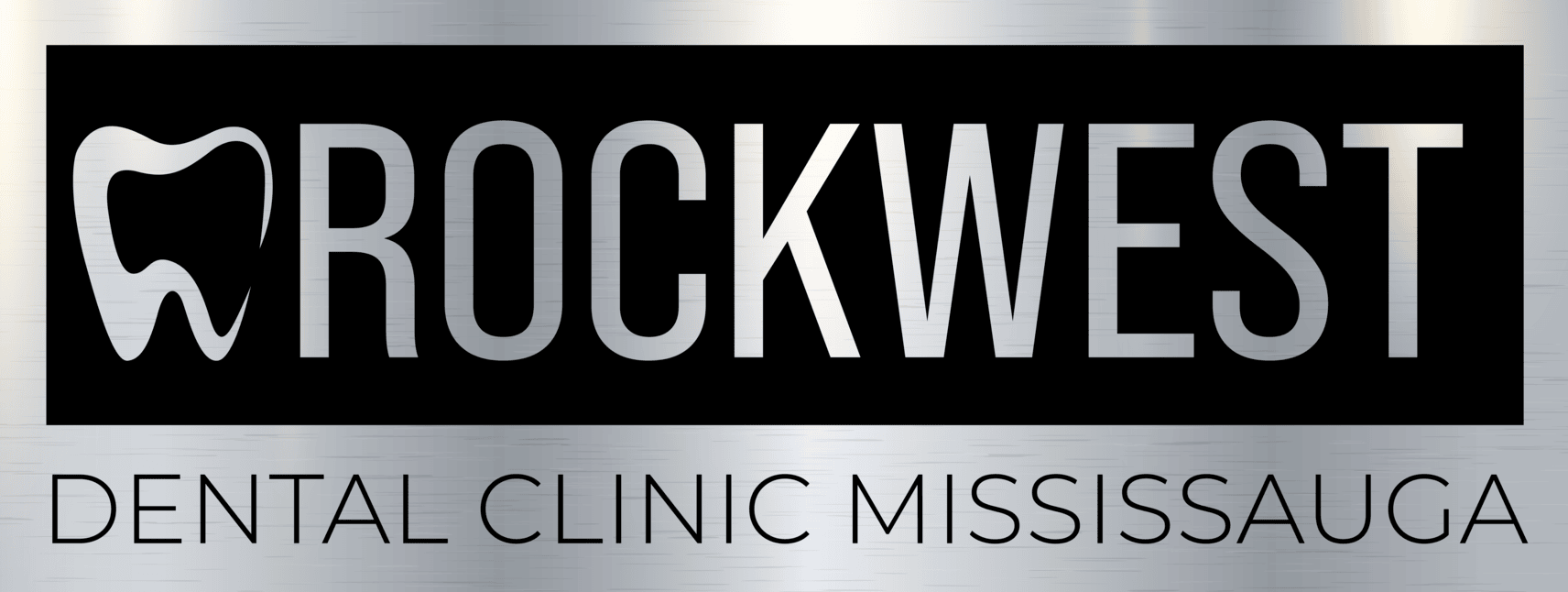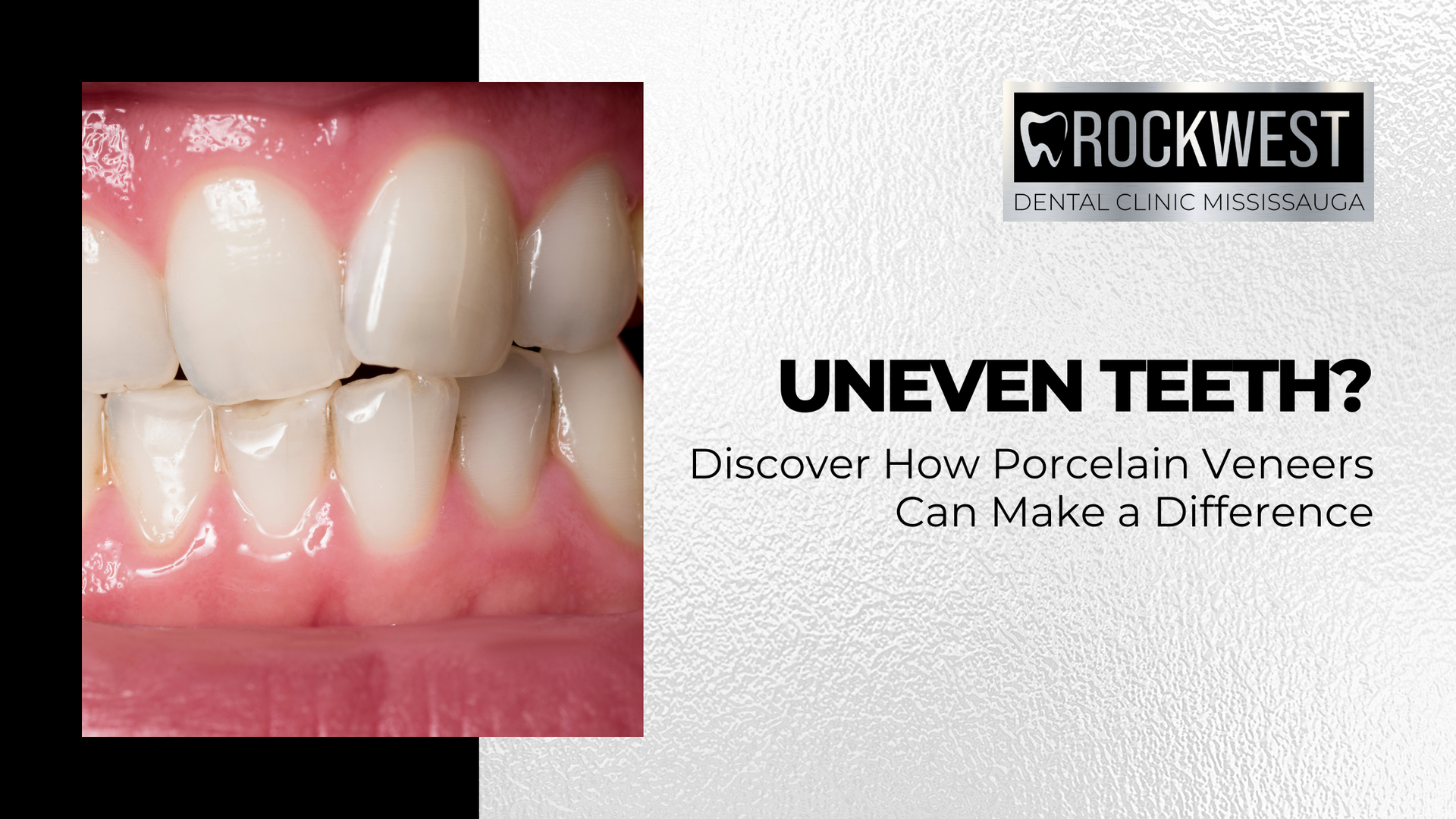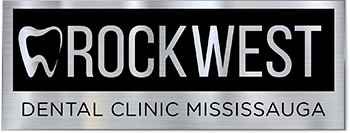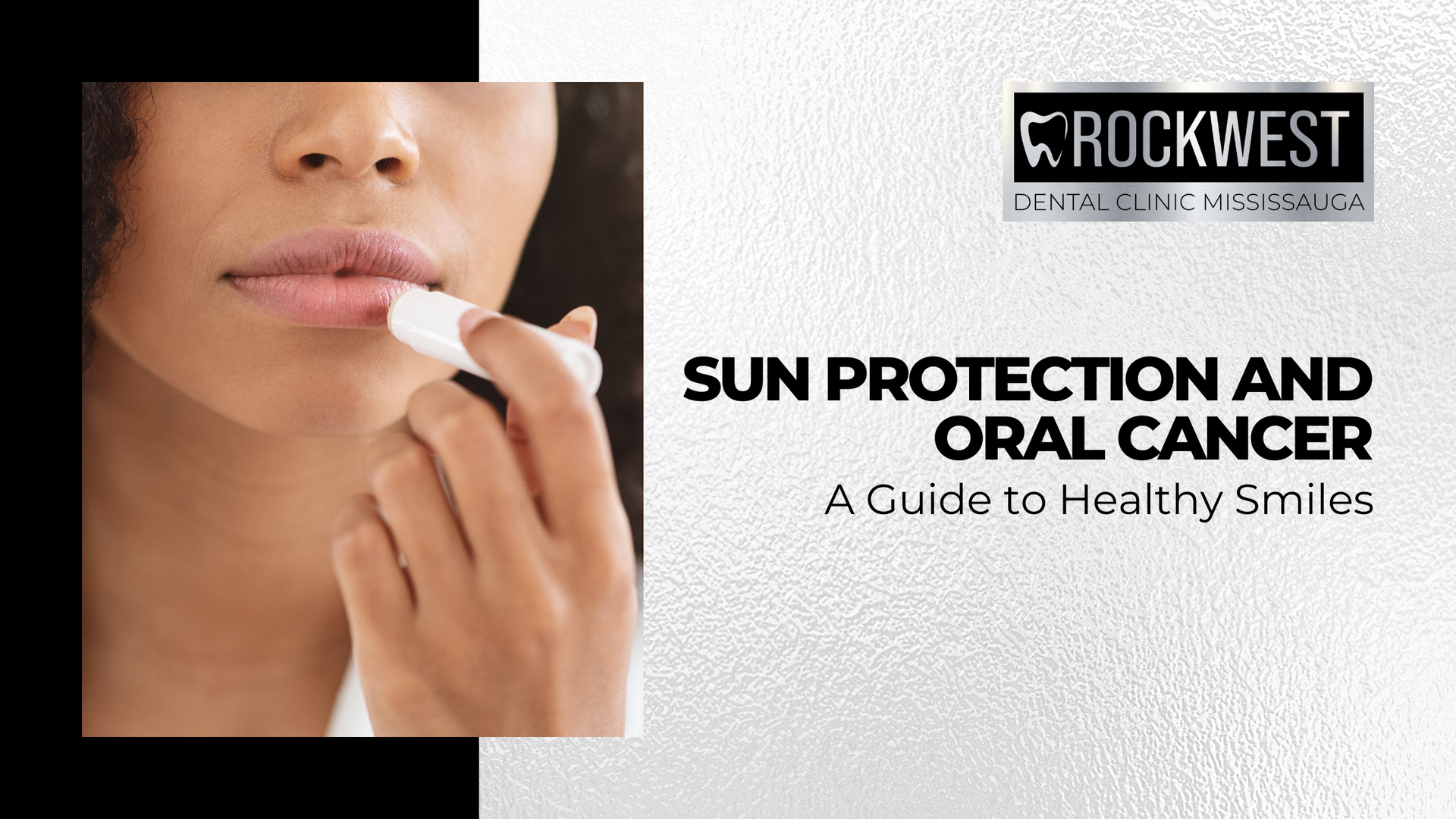


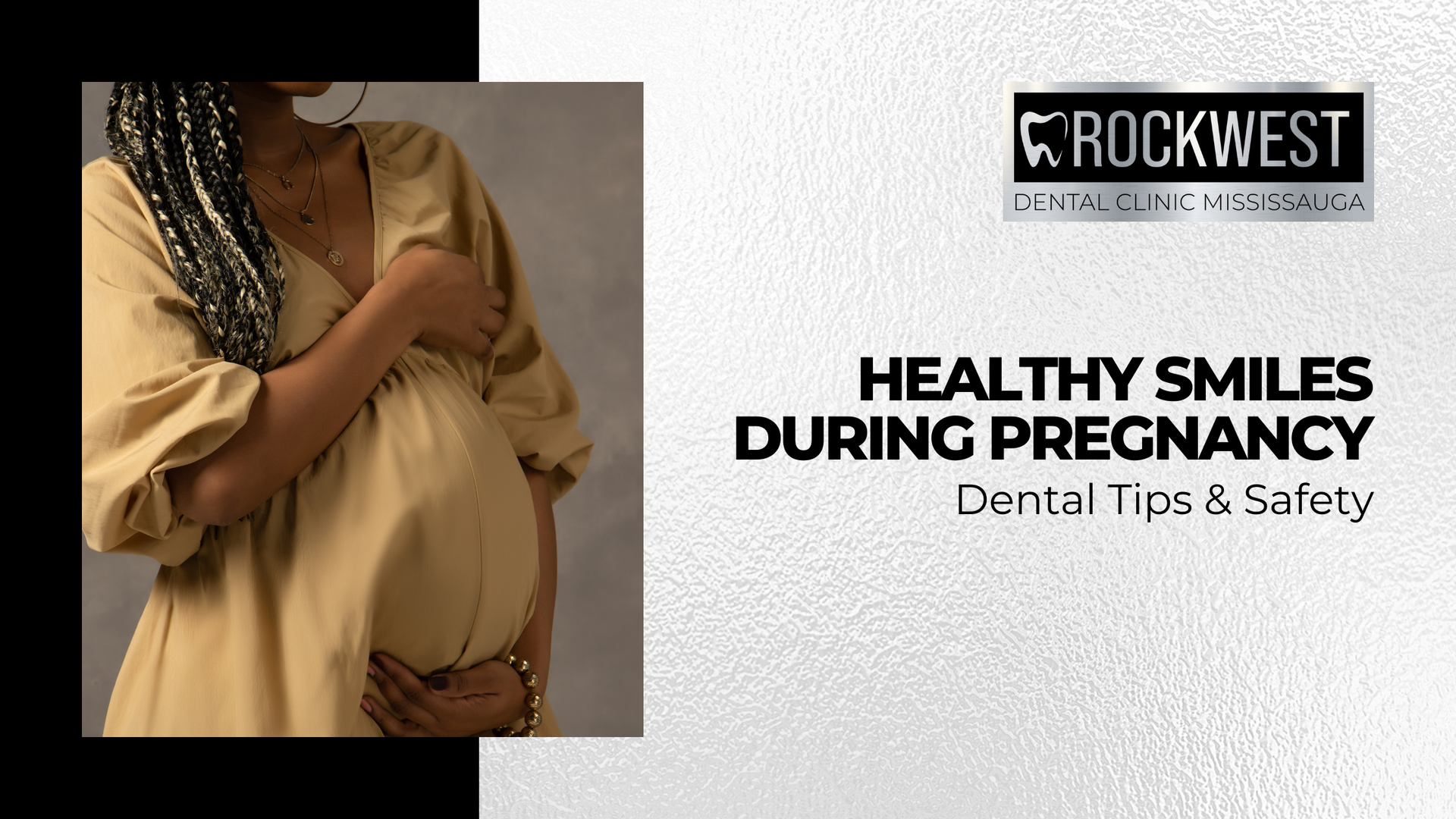


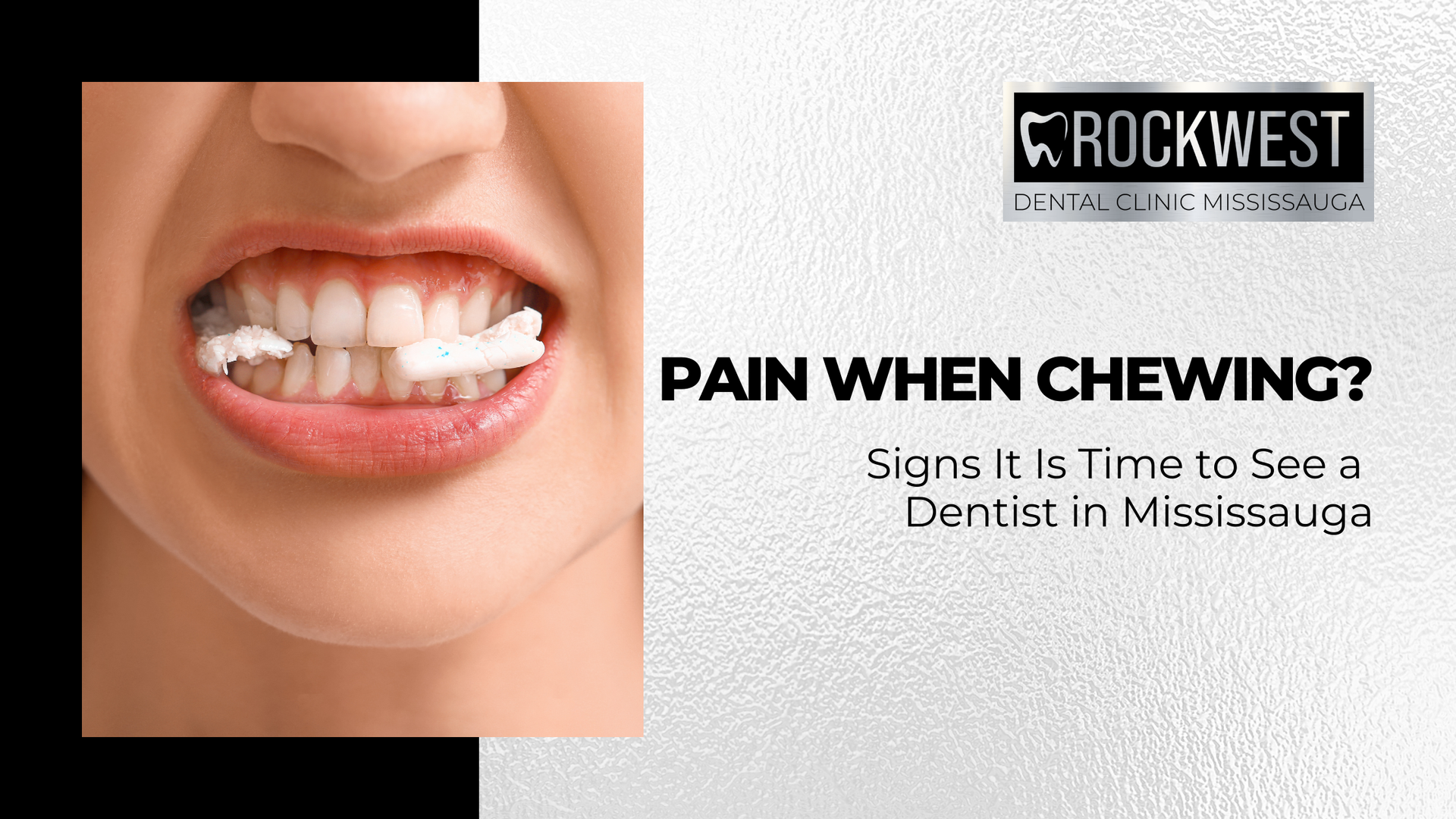

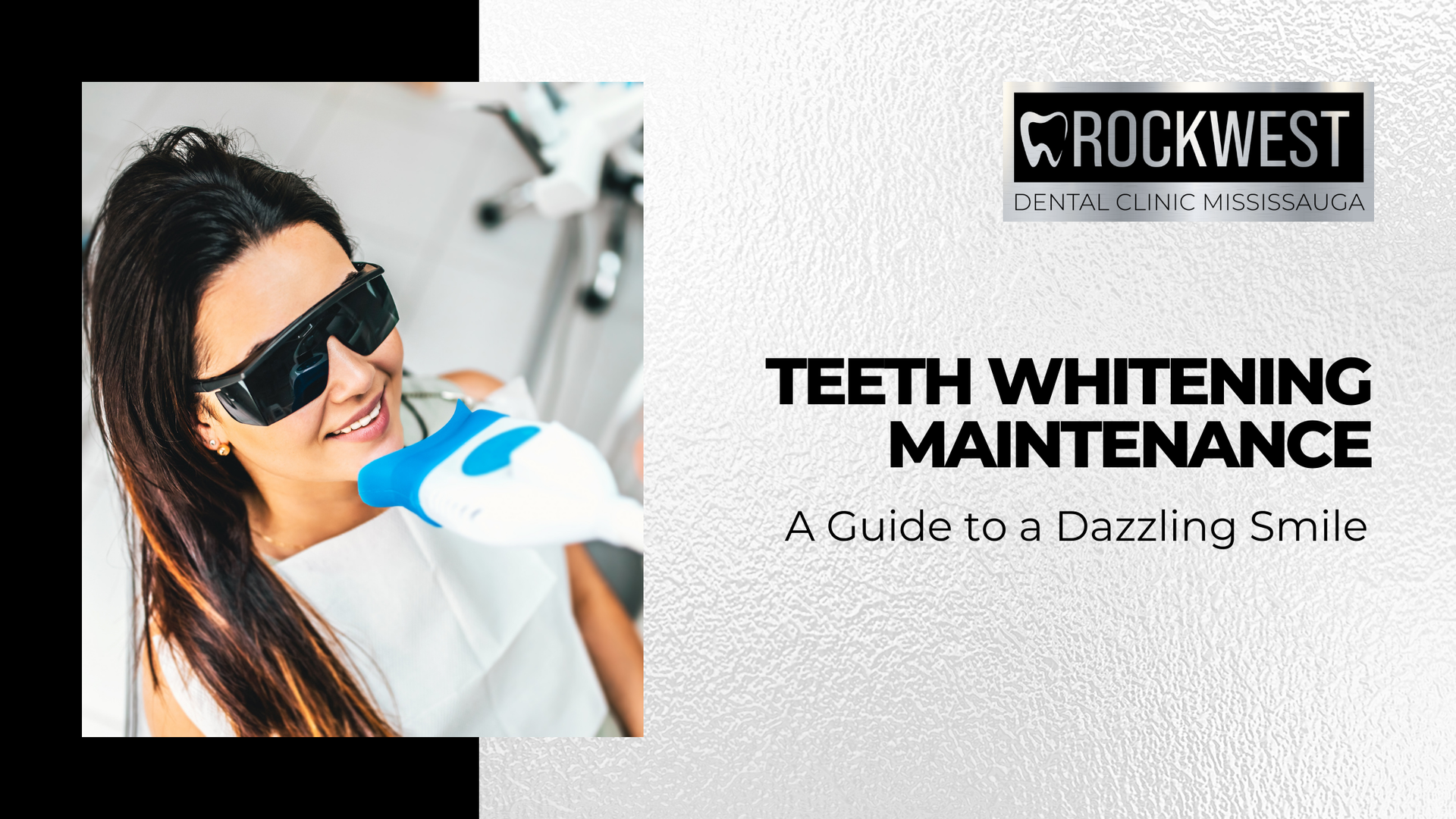
Why Are Wisdom Teeth Removed? A Comprehensive Guide
Rockwest Dental Clinic Mississauga • September 15, 2024
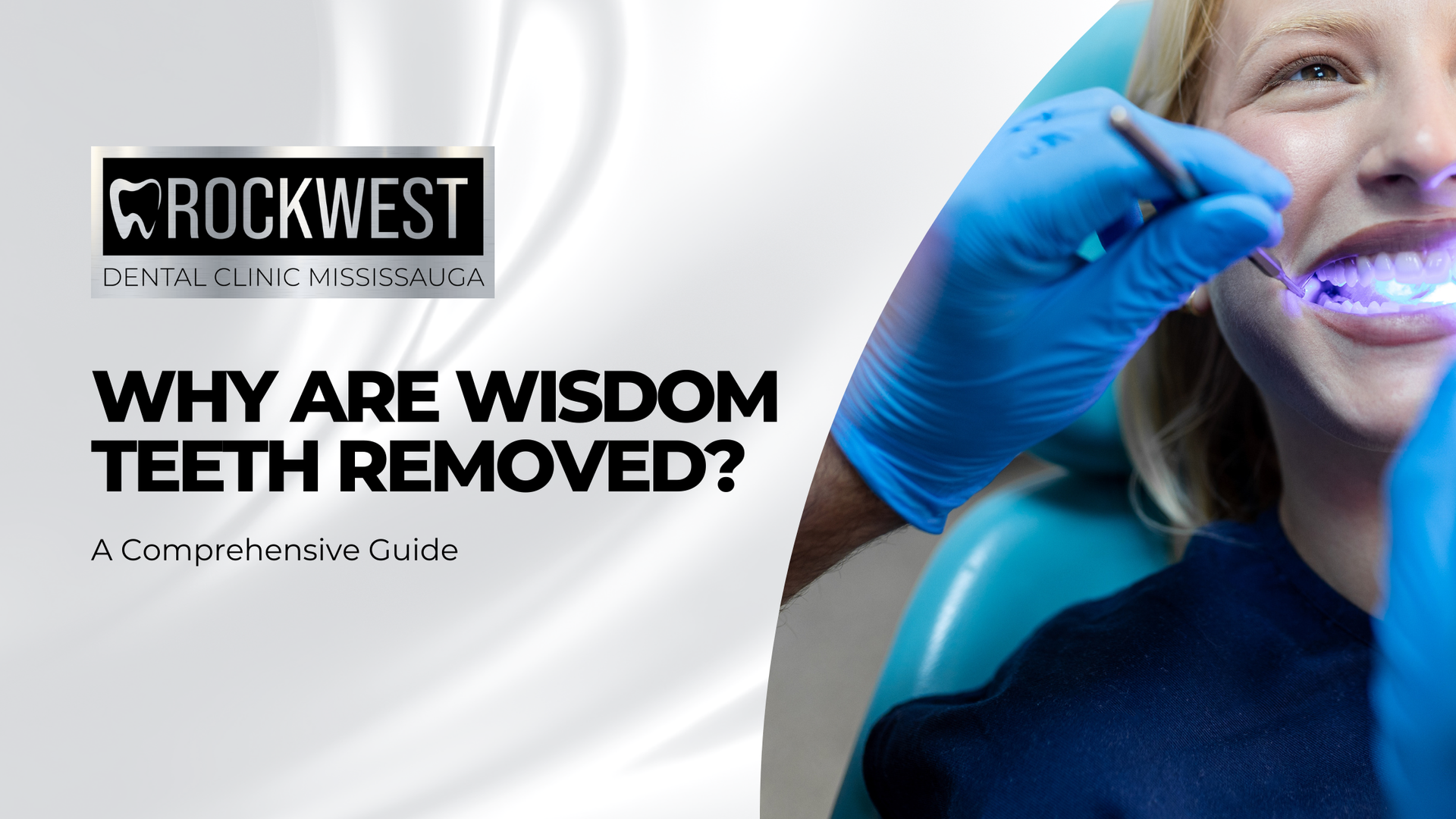
Source: Dr. Marketing
Wisdom teeth, also known as third molars, are the last set of molars to emerge, typically between the ages of 17 and 25 and often require removal due to the common problems they cause. From impaction to infections, these teeth can lead to significant dental issues if not addressed promptly. Understanding these factors is essential for making informed decisions about your oral health.
This guide explains why wisdom teeth are frequently extracted, the risks involved if left untreated, and what you can expect from the procedure.
Common Reasons for Wisdom Teeth Removal
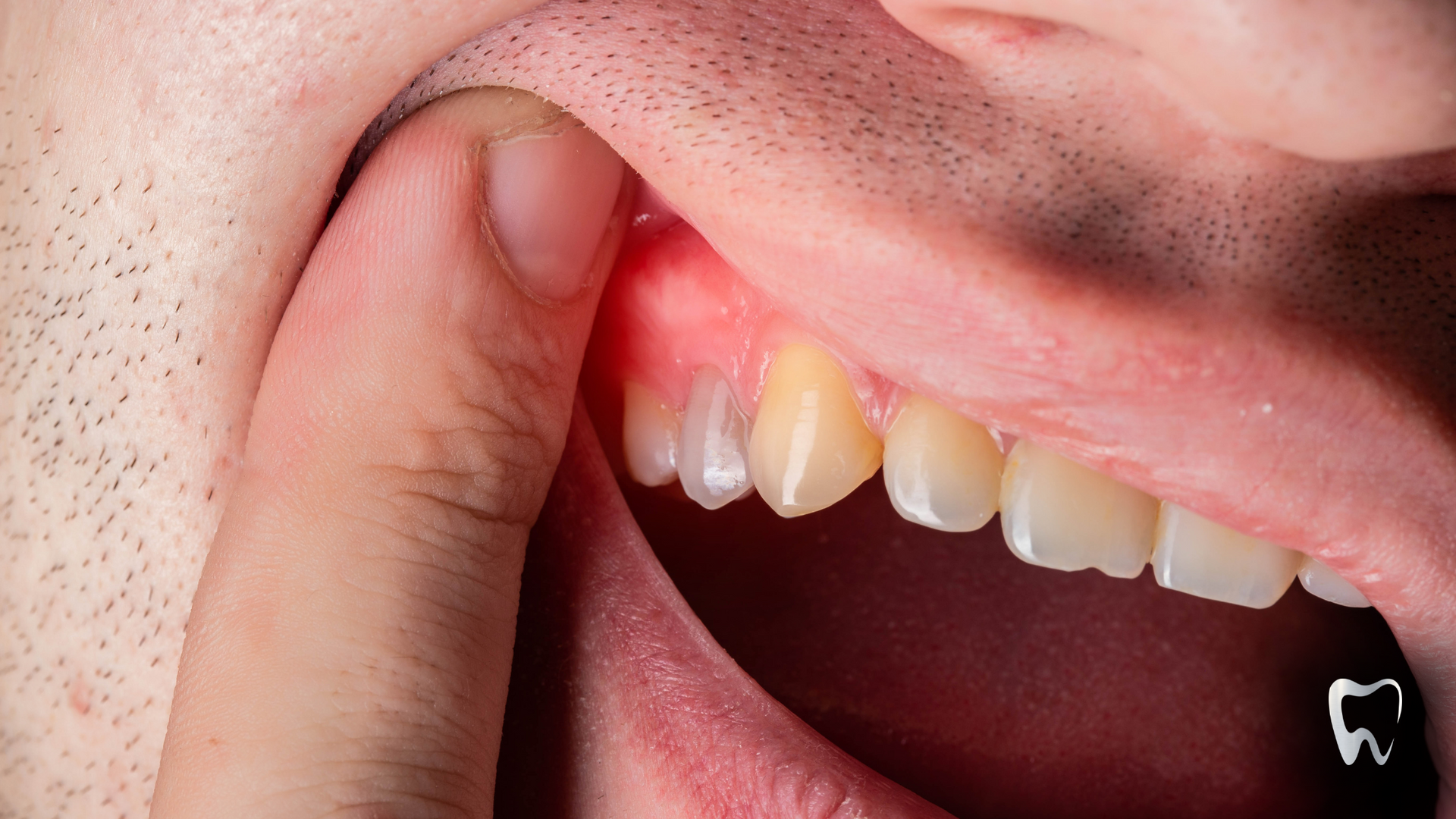
Modern human jaws often lack the space to accommodate wisdom teeth, leading to crowding and impaction 1. This spatial limitation can result in pain, infection, and other dental issues, making wisdom tooth extraction a common recommendation. Understanding the practical implications of limited jaw space is crucial for managing wisdom teeth effectively. The necessity of removing wisdom teeth has become a common medical procedure, and below are the common causes for extraction.
Impaction
One of the most common reasons for wisdom teeth removal is impaction 2. Impacted wisdom teeth occur when there is not enough room for them to emerge properly, causing them to grow at improper angles. This can lead to the tooth being trapped within the jawbone or gums, resulting in pain, swelling, and infection.
There are two main types of impaction:
- Soft Tissue Impaction : When the tooth is partially covered by gum tissue.
- Bony Impaction : When the tooth is trapped within the jawbone.
Impacted wisdom teeth can push against adjacent teeth, leading to crowding or damage to other teeth, necessitating an extraction.
Infection and Inflammation
Partially erupted wisdom teeth can create pockets around the tooth where bacteria can thrive. This can lead to pericoronitis 3, an infection of the soft tissue surrounding the tooth. Pericoronitis can cause swelling, pain, and difficulty in opening the mouth. In severe cases, the infection can spread to other areas of the mouth or even the neck, requiring immediate medical attention. Chronic inflammation around partially erupted wisdom teeth can also increase the risk of cysts and tumors, which may require more complex surgical interventions to remove.
Cyst Formation
A cyst is a fluid-filled sac that can develop around an unerupted or impacted wisdom tooth. Over time, these cysts can expand and cause damage to surrounding bone, teeth, and nerves. While cysts themselves are not tumors, untreated cysts can sometimes lead to complications that may involve more serious conditions.
Damage to Adjacent Teeth
When wisdom teeth do not have enough room to grow properly, they can put pressure on adjacent second molars, leading to damage. This pressure can cause pain and erosion of tooth enamel and increase the risk of cavities in both the wisdom tooth and the second molar.
Orthodontic Reasons
For individuals who have undergone orthodontic treatment, such as braces, the emergence of wisdom teeth can undo some of the alignment work that has been achieved. As wisdom teeth try to find space in an already crowded mouth, they can cause the other teeth to shift out of place, leading to ‘malocclusion’ (misaligned bite or crooked teeth).
Difficulty in Cleaning
Wisdom teeth, particularly those that are partially erupted, can be difficult to clean properly due to their location at the back of the mouth. This can lead to an accumulation of plaque and bacteria, increasing the risk of tooth decay and gum disease. If the above issues occur because of wisdom teeth, removing them can help improve overall oral health and hygiene.
What Happens If You Do Not Get Problematic Wisdom Teeth Removed?

Leaving problematic wisdom teeth untreated can lead to serious dental issues, including infections, pain, and damage to adjacent teeth. Below are some common potential consequences of not removing wisdom teeth and why timely intervention is crucial.
Infection, Pain & Swelling
If impacted wisdom teeth are left untreated, they can lead to severe complications such as infection, pain, and swelling. The pressure from impacted teeth can damage adjacent teeth, cause misalignment, and even cyst formation, which can harm the jawbone and surrounding structures, requiring more invasive treatment.
Tooth Decay
Wisdom teeth are difficult to clean due to their location at the back of the mouth, increasing the risk of cavities. Decay in wisdom teeth can spread to neighbouring teeth, leading to a higher risk of widespread dental issues and the need for extensive restorative treatments.
Gum Disease
The difficulty in maintaining proper oral hygiene around wisdom teeth can lead to the accumulation of plaque and bacteria, increasing the risk of gum disease (periodontitis). If not treated promptly, this condition can cause gum recession, bone loss, and even tooth loss, affecting overall oral health.
Jawbone Damage
In some cases, untreated wisdom teeth can cause damage to the jawbone 4, particularly if cysts or tumors develop. This can lead to the weakening of the jaw and even structural changes, potentially requiring extensive surgical intervention to repair the damage.
The Procedure For Wisdom Teeth Removal: What to Expect

Pre-Surgery Consultation
Before wisdom teeth are removed, a thorough examination by a dentist or oral surgeon is necessary. This typically includes X-rays to determine the position of the teeth and assess any potential complications. The consultation will also involve discussing the procedure, potential risks, and aftercare instructions.
The Extraction Process
Wisdom tooth extraction is usually performed as an outpatient procedure, meaning you can go home the same day. The type of anesthesia used depends on the complexity of the extraction and your comfort level. Options include local anesthesia, sedation anesthesia, or general anesthesia.
- Local Anesthesia : Numbs the area around the tooth, and you remain awake during the procedure.
- Sedation Anesthesia : A combination of local anesthesia and sedation that keeps you relaxed or lightly asleep.
- General Anesthesia : Makes you completely unconscious during the procedure.
The extraction process itself also varies in complexity:
- Simple Extraction : If the tooth has fully erupted, the procedure is straightforward. The dentist loosens the tooth and then removes it with forceps.
- Surgical Extraction : For impacted tooth, a small incision is made in the gum, and the tooth may need to be cut into smaller pieces for removal.

Recovery and Aftercare
Recovery from wisdom tooth extraction typically takes a few days. Common symptoms include swelling, bruising, and mild discomfort. To ensure a smooth recovery, follow these aftercare tips:
- Apply Ice Packs : Reduce swelling by applying ice packs to your face.
- Rest : Take it easy for the first 24 hours and avoid strenuous activities.
- Avoid Certain Foods : Stick to soft foods and avoid hot, spicy, or crunchy foods that could irritate the extraction site. Follow your dentist’s advice on what to eat after wisdom tooth removal.
- Keep the Area Clean : After the first 24 hours, gently rinse your mouth with warm salt water to keep the extraction site clean. Avoid brushing the area directly for a few days.
- Take Prescribed Medications : Follow your dentist’s instructions regarding pain relievers and antibiotics.
Risks and Complications
While wisdom teeth removal is generally safe, as with any surgical procedure, there can be potential risks and complications.
- Dry Socket : A condition where the blood clot at the extraction site dislodges or dissolves, exposing the bone and nerves. This can cause significant pain and delay the healing process.
- Infection : Although rare, infections can occur at the extraction site. Symptoms include fever, severe pain, and swelling that does not improve.
- Nerve Damage : In some cases, the nerves near the wisdom teeth can be damaged during extraction, leading to numbness or tingling in the lower lip, tongue, or chin. This is usually temporary, but in rare cases, it can be permanent.
Make Informed Choices With Professional Assistance For Wisdom Teeth Removal

Wisdom teeth removal is a common procedure that can help prevent a range of dental problems, from impaction and infection to damaging adjacent teeth. While not everyone will need to have their wisdom teeth removed, those who do can benefit from early intervention to avoid more serious complications down the line.
If you are experiencing discomfort or other symptoms related to your wisdom teeth, it is important to book an appointment with us to determine the best course of action. Rockwest Dental Clinic Mississauga’s expert team offers professional advice on making informed decisions about dental treatments and ensures you maintain optimal oral health.
References
- Emes, Y., Aybar, B., & Yalcin, S. (2011). On the Evolution of Human Jaws and Teeth: a review. In Istanbul University Faculty of Dentistry, Department of Oral and Maxillofacial Surgery, Bull Int Assoc Paleodont (Vol. 5, Issue 1, pp. 37–47). https://www.sleepclinic.be/wp-content/uploads/On-The-Evolution-of-Human-Jaws-and-Teeth-A-Review.pdf
- Dodson TB, Susarla SM. Impacted wisdom teeth. BMJ Clin Evid. 2014 Aug 29;2014:1302. PMID: 25170946; PMCID: PMC4148832.
- Kwon G, Serra M. Pericoronitis. [Updated 2022 Nov 21]. In: StatPearls [Internet]. Treasure Island (FL): StatPearls Publishing; 2024 Jan-. Available from: https://www.ncbi.nlm.nih.gov/books/NBK576411/
- Mortazavi H, Baharvand M. Jaw lesions associated with impacted tooth: A radiographic diagnostic guide. Imaging Sci Dent. 2016 Sep;46(3):147-57. doi: 10.5624/isd.2016.46.3.147. Epub 2016 Sep 20. PMID: 27672610; PMCID: PMC5035719.
The post Why Are Wisdom Teeth Removed? A Comprehensive Guide appeared first on Rockwest Dental Clinic Mississauga.



